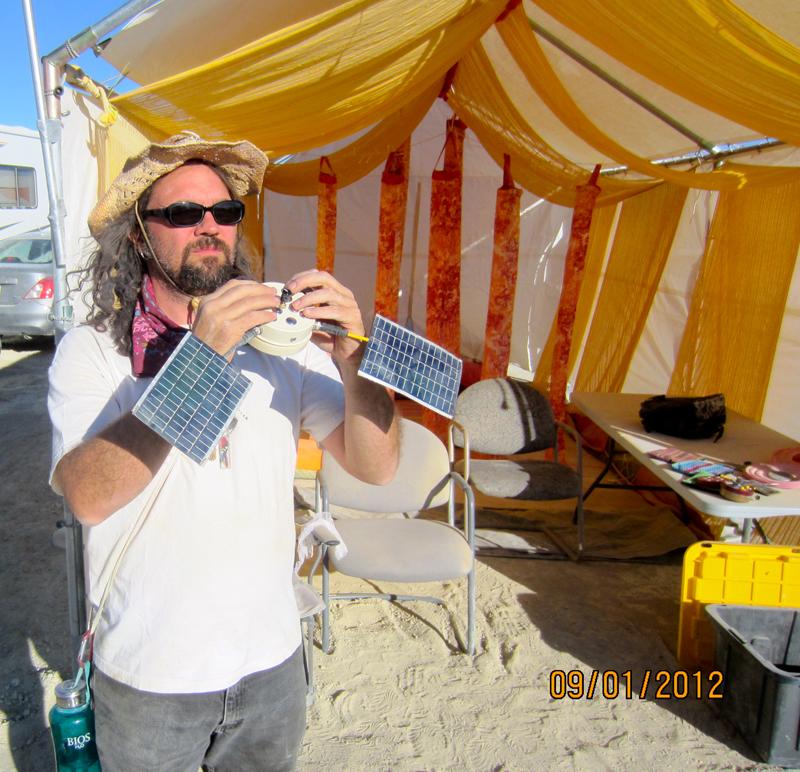Scott Smallwood appointed Director of Sound Studies Institute
Erik Einsiedel - 18 June 2020

The Sound Studies Institute (SSI) is one of the most unique interdisciplinary research units at the University of Alberta, incorporating disciplines from both arts and sciences in the study of sounds, how they are generated, and how humans use them to make sense of the world.
Scott Smallwood, the new director of the SSI, is an expert in interdisciplinary work. Smallwood is a composer, improviser and sound artist whose own research combines technology and software with hardware instruments and traditional acoustic instruments. A faculty member of the Department of Music since 2009, Smallwood teaches music composition and technology. He has previously served as the Director of Digital Humanities.
Originally from Dallas, Texas, Smallwood grew up in the Colorado Rockies. When he was 10 years old, his father gave him a cassette tape recorder, and ever since he has been fascinated by the possibilities of recorded sound. His work deals with real and abstracted soundscapes based on a practice of listening, improvisation and phonography. Ranging from sonic photographs, studio compositions, instrumental pieces and improvisations, the resulting pieces are textural explorations of space and time.
Smallwood follows in the footsteps of SSI’s previous director, Mary Ingraham, and its interim director, Ben Tucker. Smallwood is excited to continue elevating SSI’s reputation as a true interdisciplinary space, highlighting research of U of A scholars and artists, as well as community-led practices.
“I hope to expand upon our workshop series, offering opportunities for community members to learn field recording and audio editing techniques, and other sound-related skills,” Smallwood says about his many ideas. “I am also excited by the possibility of launching a podcast series that highlights sound studies research projects, including scholarly work on sound, musical projects and research-creation projects.”
Much of SSI’s work is based on one of its most unique assets: the Moses and Frances Asch Collection of Folkways Records, gifted to the University in 1985. This collection contains some of the most important 20th century recordings of not only folk music from all over the world, but also many other forms of music, and even sound in general.
The Asch Collection is the foundation of the Winter Roots Roundup festival, celebrating the best in folk, roots and blues music, and is one of SSI’s many community initiatives. Another community initiative Smallwood is excited to join is the Digitizing the Ancestors Project, a collaboration with the Aboriginal Multi-Media Society of Alberta (AMMSA) to transfer and transcribe old records into a digital archive.
Smallwood recognizes he enters his new role during unusual times. “Indeed, this issue has weighed heavily on my mind lately, and while I can’t say exactly what we might do as a response to the COVID-19 situation, one idea I’ve been thinking about is an opportunity for people to share their COVID-related projects having to do with sound,” he says.
“For example, many artists and scholars have been noticing how the COVID-19 crisis has affected our soundscape, with fewer airplanes in the sky and cars on the road, particularly as it relates to urban soundscapes, as one example. A good place to start would be to create an online listening forum to share local soundscapes, and even musical/sound art projects that are in direct response to the pandemic.”
Smallwood begins his three-year term as Director of the Sound Studies Institute on July 1, 2020.
“I’m really excited about getting a chance to lead the institute, and hope that the next three years will continue to bring strange and beautiful new sounds to the community!”
To learn more about the Sound Studies Institute, visit their official homepage. Scott Smallwood’s most recent album Go Where Light Is can be found on Spotify and Bandcamp. Created as part of his duo Evidence and released by Dead Definition Records in 2019, the album is built from field recordings and improvisations made in Manizales, Colombia in May 2016.